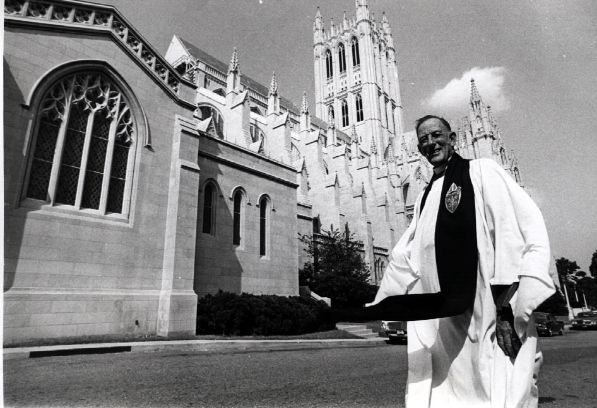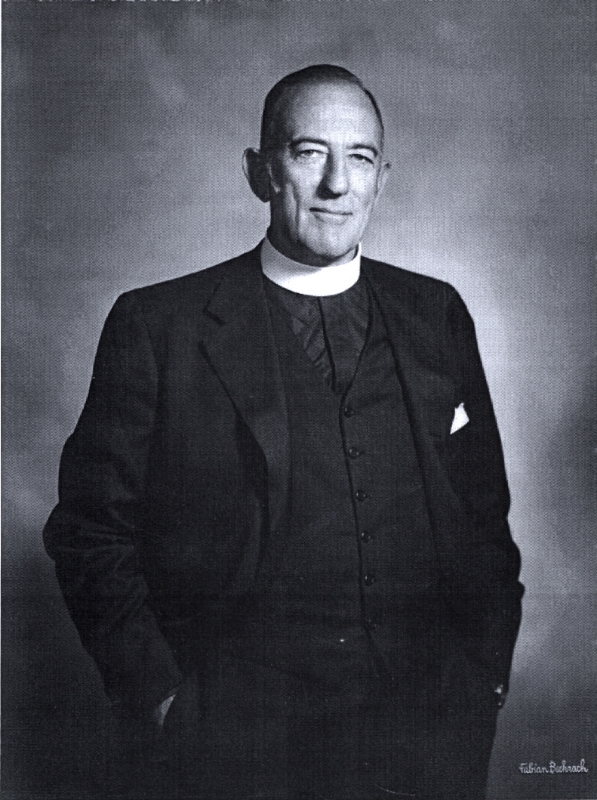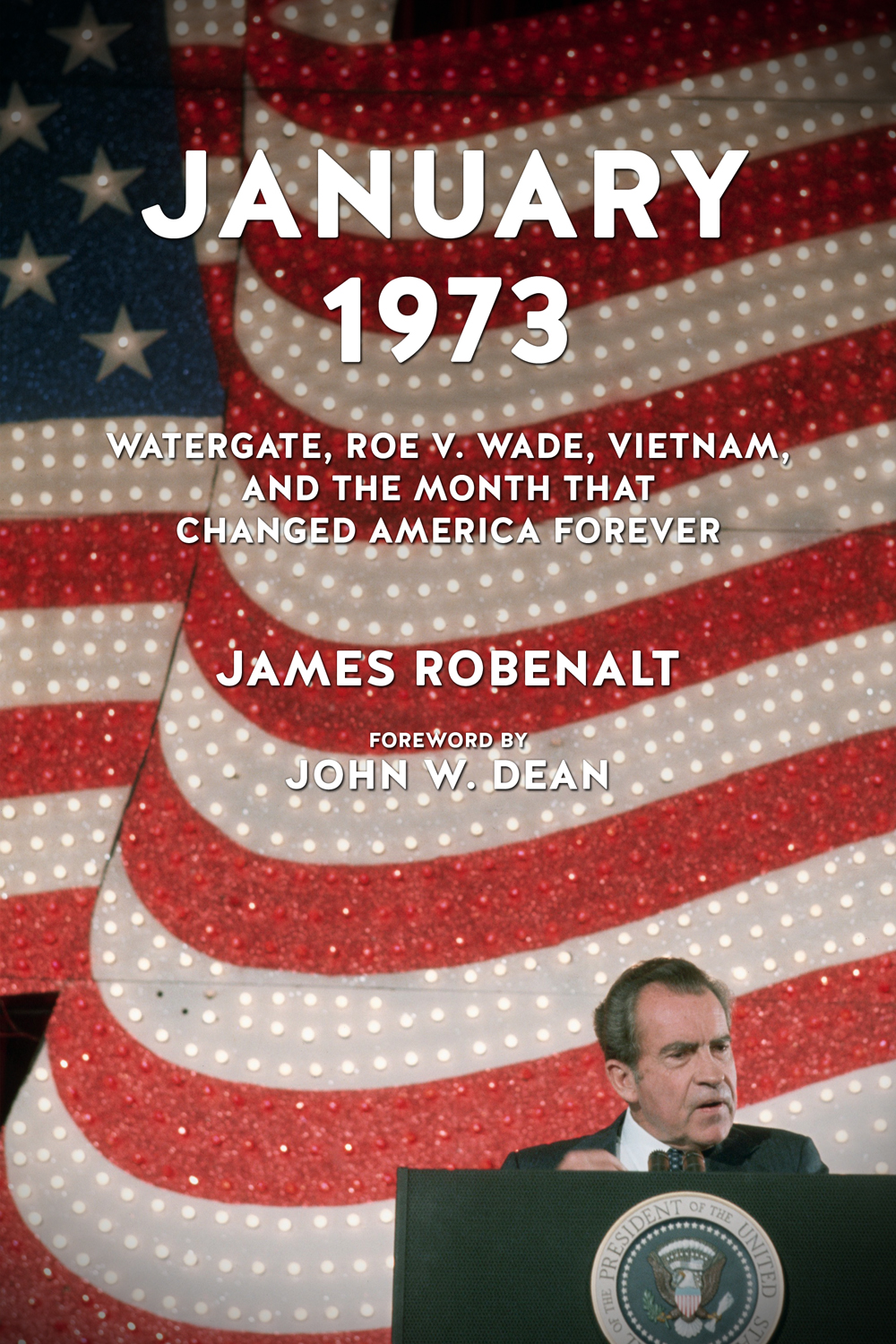Harry Truman died the day after Christmas 1972. His memorial service in Washington, D. C., would take place on January 5, 1973.
His death was a marker and had connections to the other great stories of January 1973.


Dean Francis B. Sayre of the Washington National Cathedral. Sayre was Woodrow Wilson's grandson, the last child born in the White House. Bess Truman selected Sayre to deliver Truman's eulogy. Nixon referred to Sayre as "an ass" and obsessed over how he could avoid the memorial service even though he would be in Washington on January 5. Nixon's animus for Sayre arose from two things: (1) Sayre was a vocal opponent to the Vietnam War and led protests outside the White House; and (2) Nixon and his attorney general, John Mitchell, had been called out at the memorial service for Justice Hugo Black in September 1971 (Sayre was presiding but did not deliver the eulogy). Nixon had no intention of giving Sayre a free shot at Truman's memorial.
Connections to the other great stories of January 1973:
1. Truman's actions in Korea started the policy of containment of communism in the Far East, which led eventually to America's involvement in Vietnam. With Truman's passing and the coincident end of the Vietnam War for the US in January 1973, a particular brand of American hubris--the belief that American military power could always favorably change the outcome in foreign wars--fell into disrepute. The Gulf War and the events of 9/11 resurrected the belief in American military power, but the lessons of its limitations continue to be seen in Iraq and elsewhere.
2. On the day the Korean conflict started, Truman dedicated the courthouse that would be the site of the Watergate burglars' trial. The symbolism is striking. Truman, known for his blunt honesty, stood in contrast to Nixon, who Truman considered to be a congenital lier. That Truman would dedicate the courthouse where, years later, a burglars' trial would start the chain of events that resulted in Nixon's downfall is noteworthy and ironic. That he would do so on the day the Korean conflict began--which became the activating cause for Vietnam--makes it doubly symbolic.
3. The New Deal and its extension through the programs of LBJ's Great Society (Medicare, food stamps, welfare, Head Start, Corporation for Public Broadcasting) hit the wall in January 1973 with the rise of the Nixon counterrevolution. The Nixon forces (later Reagan forces) pushed back against the idea of governmental paternalism. Nixon's second inaugural, delivered on January 20, 1973, was a call to arms. "Government must learn to take less from people so that people can do more for themselves," Nixon declared. Truman's and Johnson's passing were corporeal manifestations of the political break with the spirit of the New Deal and the Great Society. America was to be defined not by a government that would look out for the common good, but as a collection of individuals who would take responsibility for their own lives and thereby transform society. "From this day forward," Nixon said in his second inaugural, "let each of us make a solemn commitment in his own heart: to bear his responsibility, to do his part, to live his ideals--so that together, we can see the dawn of a new age of progress for America."
LBJ signing the Medicare bill as Truman looks on.
4. Justice Tom Clark. Truman appointed Tom Clark to the United States Supreme Court. LBJ would later engineer Clark's resignation by appointing his son, Ramsey Clark, as his attorney general, thereby raising the appearance of a conflict of interest in cases that would be argued by the United States. The move allowed LBJ to nominate the first African-American, Thurgood Marshall, to the Supreme Court. Clark, freed from the bonds of being a justice, authored an important law review article on abortion, which was cited by Justice Blackmun in Roe v. Wade.
Truman congratulates Tom Clark.




